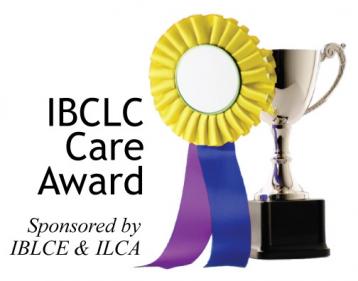Breastfeeding 101: Tips for new moms

Why breastfeeding is important
Breastfeeding provides many health benefits to your baby. First of all, breast milk is a continuously changing food that adapts to your child as they grow. And, of course, breast milk is free, always available, and thousands of dollars cheaper than formula.
Studies have also shown that breastfed babies have a lower risk of developing childhood cancers and respiratory and food allergies. They also have less chance of developing:
- Ear infections
- Type 1 diabetes
- Asthma
- SIDS
- Obesity
- And some GI infections
Breast milk also boosts babies' immune systems, making them less vulnerable to infectious diseases and respiratory illnesses. For premature infants, breastfeeding can decrease the risk of necrotizing enterocolitis.
Breastfeeding also offers many health benefits to mothers. Moms who breastfeed are less likely to develop Type 2 diabetes as well as breast, uterine and ovarian cancer. It also decreases a mother’s risk of heart attack, stroke, and even dying of heart disease.
How long should you breastfeed your baby? The American Academy of Pediatrics and the American College of Obstetricians and Gynecologists recommend exclusive breastfeeding for six months, with continued breastfeeding as solid foods are introduced during the first year of life. The World Health Organization extends this recommendation to two years or longer.
Beginning breastfeeding
After delivery, a lactation consultant will talk to moms about the importance of skin-to-skin contact. This contact helps mothers and babies bond but also helps push a mother’s milk volume.
“Babies will naturally root around at the breast. Even if babies aren’t latching on, they’re still driving a mother’s milk volume just by being near,” explains Stacia Kennedy, RN, International Board of Lactation Consultant Examiners-certified lactation consultant.
Lactation consultants can help babies to latch and help mothers guide babies to the correct positioning for breastfeeding. They can also show moms how to do manual expression, massaging their breasts to get colostrum to come out.
Colostrum is the first milk produced by the breast right after birth. It is thick, yellowish, and rich in nutrients your baby needs in the first few hours and days. Mature milk starts about 10 to 15 days after birth. It looks thinner than colostrum but is still full of nutrients for the baby. Expect to feed your baby between eight to 12 times throughout the day. Most feedings take 15 to 20 minutes per breast.
What breastfeeding supplies do I need? What’s covered by insurance?
The number of breastfeeding products can be overwhelming. To keep it simple, start by gathering the following supplies:
- A breast pump and supplies (such as milk storage bags)
- Nursing bra
- Nursing cover
- Bottles (if you intend to bottle-feed)
- A pillow to support your baby
What’s covered will vary by insurance, so be sure to ask. Many insurers cover breast pumps and supplies, milk storage bags, and visits with a lactation consultant.
When breastfeeding, how often should I pump?
How often you need to pump depends on how much milk you want to gather. If you’re pumping because you want milk for bottles or to increase your supply, you might pump a few times a day after regular nursing sessions.
If you’re exclusively pumping, it’s all about supply and demand,” says Kennedy. “If your baby eats eight to 12 times a day, you may need to pump at least eight times to keep your supply up with your baby’s demand.”
If you plan to pump when you return to work, starting at least two weeks in advance will also give your baby time to get used to bottle feeding.
What should I eat (or not eat) while breastfeeding?
Breastfeeding provides the nutrients to support your baby's growth and health. Nursing mothers need approximately 330 to 400 calories extra a day. Healthy choices include protein-rich foods, whole grains, and plenty of fruits and vegetables. Also, look for foods rich in iron and calcium, such as lentils, leafy green vegetables, dairy products, and enriched cereals. Consider taking a daily multivitamin and mineral supplement while breastfeeding.
Nursing moms should also drink plenty of water to stay hydrated. Avoid sugary drinks and limit your caffeine intake to no more than 16 to 24 ounces per day. “There’s no level of alcohol in breast milk that’s considered safe for a baby,” adds Kennedy. “If you drink, avoid breastfeeding until the alcohol has completely cleared your breast milk.”
Depending on your body weight, it takes approximately two to three hours for a 12-ounce beer, five ounces of wine, or 1 ½ ounces of liquor to clear your breastmilk. You may want to pump milk before you drink alcohol to feed your baby later.
What if breastfeeding hurts?
Breastfeeding isn’t supposed to hurt. However, many new mothers experience discomfort at least occasionally while breastfeeding. The most common causes of breastfeeding pain include:
- Suboptimal latch and positioning
- Engorgement or mastitis
- Teething
- Using artificial nipples, such as pacifiers and bottles, which can affect a baby’s latch
- Poorly fitting pump flanges or excessively high pressure can cause trauma to the nipple or breast
Talk to your health care provider if you experience persistent pain while breastfeeding. You may have a condition like thrush, mastitis or vasospasm, which requires medical treatment to resolve. A lactation consultant can help you identify and address common issues, such as suboptimal latch and positioning or problems with your breast pump supplies and settings.
Breastfeeding classes and groups
Nebraska Medicine offers educational resources and support for women throughout their breastfeeding journey.

Nebraska Medicine has received the IBCLC Care Award in recognition for staffing professionals who hold the prestigious International Board Certified Lactation Consultant® (IBCLC®) certification and providing a lactation program for breastfeeding families.







